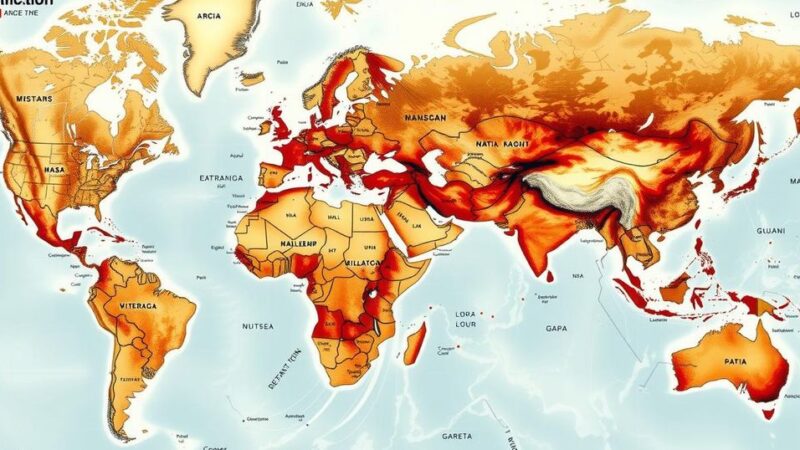As of January 26, 2025, diphtheria has killed 1,269 Nigerians across 18 states, with 24,804 cases reported. Recent tragedies, including the death of a 12-year-old in Lagos, underscore the urgent need for effective vaccination, disease surveillance, and public awareness. Authorities must act decisively to prevent further deaths from this preventable disease.
A serious health crisis is presently unfolding in Nigeria, where diphtheria has claimed the lives of 1,269 individuals since 2022. This situation spans across 18 states, with 24,804 confirmed cases reported as of January 26, 2025, according to the Nigeria Centre for Disease Control (NCDC). The slow response from health authorities has highlighted critical weaknesses within Nigeria’s public health system.
The latest incident involved a 12-year-old student at King’s College, Lagos, who tragically succumbed to diphtheria after developing symptoms on February 22, 2025. Despite being treated with antibiotics and receiving a full dose of diphtheria antitoxin at the Lagos University Teaching Hospital, the child experienced complications such as myocarditis, leading to his death on March 6, 2025. Following his death, 34 close contacts were traced, with 14 requiring hospitalization for similar symptoms.
Diphtheria, a highly contagious infection caused by the bacterium Corynebacterium diphtheriae, mainly affects the throat and nose. The disease releases toxins that can obstruct airways and inflict damage on the heart and nervous system. Key symptoms of diphtheria include severe sore throat, fever, swollen neck, difficulty breathing, and thick grayish-white patches in the throat. It spreads through respiratory droplets and contaminated surfaces, particularly in crowded environments like schools.
Despite being preventable through vaccines, Nigeria faces escalating diphtheria-related fatalities. Experts have identified three primary failures driving the current crisis. First, poor vaccination coverage has resulted in many children missing the essential DTaP vaccine. Second, weakened disease surveillance hampers timely outbreak detection, allowing spread before containment. Third, inadequate public awareness about symptoms and vaccination needs delays health-seeking behavior among parents.
The outbreak in Lagos serves as a critical alert, necessitating decisive action from authorities to avert further casualties. Immediate actions recommended include launching aggressive nationwide vaccination campaigns, enhancing surveillance mechanisms for early outbreak detection, and promoting public health awareness through schools, religious centers, and the media.
While government action is paramount, individual responsibility remains vital. Families must ensure that children receive routine vaccinations and booster shots, uphold hygiene standards such as regular handwashing, and seek immediate medical care if symptoms emerge. It is imperative that Nigeria treats diphtheria not as an ordinary health crisis but as a preventable disease that should not claim lives in 2025. The case at King’s College is merely one instance among many avoidable tragedies. The lingering question is whether authorities will act to prevent further loss of life.
In conclusion, Nigeria is facing a severe diphtheria crisis with a substantial death toll attributed to the disease. The slow response from health authorities, along with poor vaccination coverage, inadequate disease surveillance, and insufficient public awareness, has exacerbated the situation. Urgent and decisive actions, including nationwide vaccination campaigns and increased public health education, are critical. Both government and individual responsibilities must align to address this preventable health crisis effectively.
Original Source: allafrica.com






